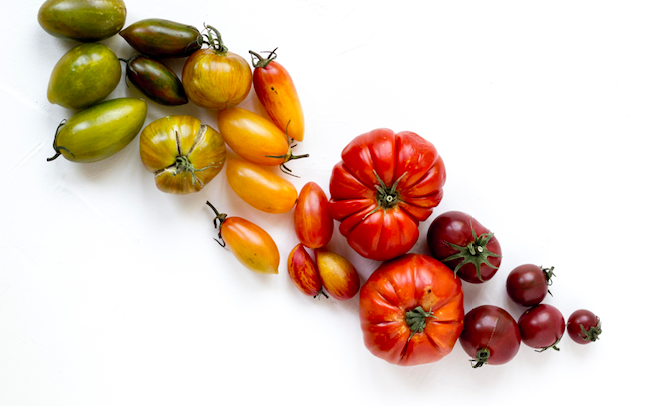TWO TORONTO-AREA BUSINESSES ARE TAKING A BITE OUT OF CLIMATE CHANGE WITH UPCYCLED FOOD.
By Meagan Hodgetts
Food waste is a global problem with many attempts at finding sustainable solutions. But one new idea is taking a bite out of food waste: upcycled food.
Businesses such as The Spent Goods founded by Dihan Chandra and Bruized founded by Monique Chan are changing Toronto’s foodscape by taking fruit and vegetables that are destined for waste and turning them into something delicious.
“We’re trying to sort of give them a home and just sort of promote delicious foods that help reduce climate change,” Chandra said.
According to a study by the Value Chain Management Centre and Second Harvest, 58 per cent or 35.5 million tonnes of food is wasted across the food supply chain in Canada. To put that into perspective, that’s enough food waste to fill approximately 257 Olympic-sized swimming pools. At least 32 per cent of that food waste is avoidable.
Chandra wanted to turn all that waste into something useful. After talking to a Toronto brewery one night about how they disposed of the used grains at the end of the brewing process, Chandra realized the spent grains could still be used as food for human consumption. At the time, the grains were headed to farms for animal feed or landfills, contributing to greenhouse emissions as they decayed and were transported outside of Toronto.
What is upcycled food?
New ideas always come with new questions. What is upcycled food and how do you make it?
“Most people associate food waste with rotting food or food that isn’t edible,” said Chan, whose Bruized is a Toronto-based business that focuses on taking imperfect foods and turning them into healthy bites.
At The Spent Goods Chandra partners with breweries, such as Halo Brewery, bakeries or cafes in the Toronto area to produce upcycled baked goods, such as beer bread sour dough or beer pretzels.
Halo Brewery’s Callum Hay had seen The Spent Goods’ products at local markets and cafes and was interested in the business.
“Even though we are a small company, we do end up producing a lot of spent grains, and those just end up going out the back in bins. I was on board immediately,” Hay said.
When the Halo team finishes up a round of brewing, they box up the spent grains, which then go to The Spent Goods or one of the businesses in the network. One company that Halo works with is only two doors down from their business, which means that Hay only has to box up the grains after production and walk them to the nearby café. The cafe then begins transforming the spent grains into upcycled bread. It also means the grains will be refrigerated within an hour and Hay doesn’t have to worry about them spoiling.
“We take it as soon as it’s produced. We let it cool to room temperature and then freeze what we need for the given week,” Chandra said. The portioned grains are then baked into products such as their beer bread sourdough or their beer pretzels. While the solution seems to be a success, Chandra notes that one of the challenges The Spent Goods’ networks are facing is increasing shelf life.
Chan has figured out a system for increasing the shelf life of her products at Bruized such as their product pulp crunch made using pulps from Toronto-based juice companies, or their spiced apple chutney, which uses local apples that can’t be sold in stores.
“I collect it, pre-weigh it, vacuum seal it and freeze it. That helps increase the shelf life and lowers the amount of times I have to go pick up pulp,” Chan said.
She still struggles with outsourcing the work though and wishes she had a network of cafes and breweries like The Spent Goods has that she could tap. She’s tried to create that network in the past. Last year, Chan connected with a company that planned to create an online database for suppliers and businesses in the upcycled food business, where different distributors posted ingredients they had available and Chan would buy them. But with only a few suppliers if someone was out of ingredients, Chan couldn’t make her products.
“Dihan outsources production to someone who has the facility and is already making a similar product, which is kind of the goal for us,” said Chan. At Bruized, Chan is operating a mostly one-woman-mission.
The Spent Goods and Bruized are making a dent in food waste.
According to The Spent Goods impact summary, from 2018 to 2022 the company produced 178,887 loaves of bread using spent grains from three different breweries in the Toronto area.
But the company is saving more than just food waste. Their local network means there’s fewer emissions from transporting spent grains either to farms for feed or to landfills outside of the city. In total, The Spent Goods has helped offset about 7.1 tonnes of carbon emissions and greenhouse gasses — equivalent to one vehicle starting in Toronto and driving roughly close to three-quarters of the way around the globe.
Chan also keeps records of how much produce would have gone to waste. To date, Bruized has saved 4,571 pounds of food from ending up in the landfill.
Regulating upcycled food
While grocery stores label foods “non-GMO” or “certified organic” based on findings from a regulating body, when it comes to upcycled food, the non-profit Upcycled Food Association (UFA) verifies that food consumers buy is made of food that would have contributed to waste, but is still edible. In 2022, the UFA expanded their work from the United States into Canada. The organization is creating a growing network of businesses working toward reducing food waste globally.
Turner Wyatt, the UFA’s chief executive, expanded the association’s certification program into Canada because of increasing interest in upcycled food. It was a “no-brainer” that Canada would be the first place for the UFA to expand their program, Wyatt said.
Third-party verification gives consumers peace of mind, he added.
“If I want to have an impact on food waste, when I walk into the grocery store, which are the products I should buy in order to do that?” Wyatt said.
With the UFA’s certification program, it’s easier to keep track of the effect upcycled food is having on food waste. “We can guarantee that there is a projected 950 million — likely more now — pounds of food waste prevented as a result of the 250 or so [verified] products,” Wyatt says.
Wyatt said that along with an increasing demand for sustainable products, more companies are “greenwashing” their products, a practice where companies appear sustainable while not being truly eco-friendly. The UFA is working to catch businesses that use the UFA’s certification program to engage in the practice.
Not a silver bullet
Pamela Fergusson, a member of the Dietitians of Canada leadership team on sustainable food systems, said while upcycled food is an effective solution, it likely isn’t having the effect we need it to because upcycled food has an image problem. In a research article published by Frontiers in Environmental Science the reason for upcycled food not having the impact it could is chalked up to “consumer perspective.”
In a time where both the cost of food and food waste are increasing, researchers found that most of the public isn’t interested in paying a premium price for upcycled food. Overall, researchers found that consumers were willing to pay less for upcycled food products than they would for traditional food products.
And that’s because upcycled food can be expensive for most consumers.
Bruized’s Salted Choco-Pearamel Cookies that use upcycled pear and aquafaba costs $16.50 for six cookies, while a package of chocolate chunk cookies found in most Ontario grocery stores costs around four dollars.
“We really need to think of how we can keep food costs lower or better manage our food system… and it is a potentially great way to be innovative,” Fergusson said.

